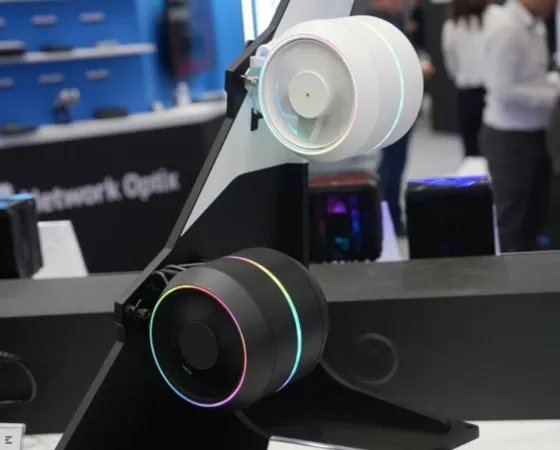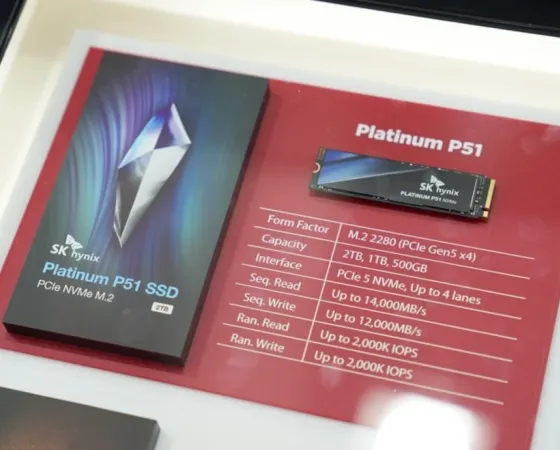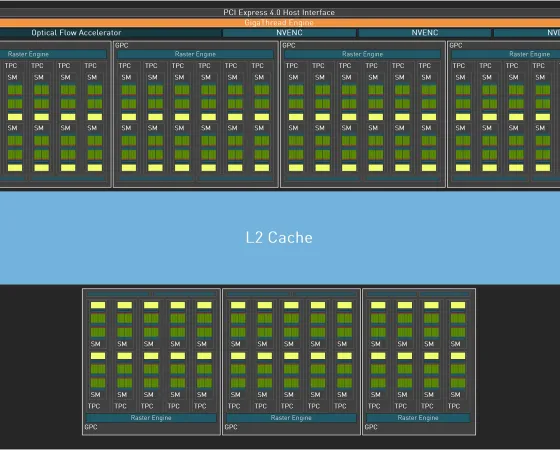Rust's Foundation Announces a New 'Safety-Critical Rust Consortium'
Read more of this story at Slashdot.
Read more of this story at Slashdot.
Read more of this story at Slashdot.
Read more of this story at Slashdot.
Read more of this story at Slashdot.
Read more of this story at Slashdot.
 Vous connaissez sans doute déjà la gamme GameRock de la marque Palit. Sinon, vous pouvez consulter le test de la Palit GeForce RTX 4090 GameRock OC réalisé par Thibaut.Après la série originelle GameRock la firme avait ensuite inauguré les GameRock Premium et même GameRock OmniBlack. C'est à cette de...
Vous connaissez sans doute déjà la gamme GameRock de la marque Palit. Sinon, vous pouvez consulter le test de la Palit GeForce RTX 4090 GameRock OC réalisé par Thibaut.Après la série originelle GameRock la firme avait ensuite inauguré les GameRock Premium et même GameRock OmniBlack. C'est à cette de...
 La marque DeepCool a plutôt le vent en poupe ces dernières années, notamment en matière de refroidisseurs CPU. Elle propose également à son catalogue des boîtiers ou encore des alimentations, alors qu'est-ce qui pourrait bien faire que tout s'arrêterait d'un coup, en tout cas aux États-Unis ? Eh bie...
La marque DeepCool a plutôt le vent en poupe ces dernières années, notamment en matière de refroidisseurs CPU. Elle propose également à son catalogue des boîtiers ou encore des alimentations, alors qu'est-ce qui pourrait bien faire que tout s'arrêterait d'un coup, en tout cas aux États-Unis ? Eh bie...
 Ah cette bonne vieille image d'un réacteur d'avion en guise de refroidisseur CPU. Évidemment, scientifiquement parlant l'association est absurde, un moteur d'avion n'ayant pas pour fonction première de refroidir mais plutôt de faire voler une grosse boîte de conserve. Pourtant, la métaphore a déjà d...
Ah cette bonne vieille image d'un réacteur d'avion en guise de refroidisseur CPU. Évidemment, scientifiquement parlant l'association est absurde, un moteur d'avion n'ayant pas pour fonction première de refroidir mais plutôt de faire voler une grosse boîte de conserve. Pourtant, la métaphore a déjà d...
 Au mois de mars, Matthieu vous dévoilait le Platinum P51, le futur SSD PCIe 5.0 du fabricant SK hynix. À l'époque, nous avions droit à la fiche descriptive suivante : On découvrait sans surprise que le Platinum P51 serait décliné en versions 500 Go, 1 To et 2 To, qui serait classiquement en M.2 2280...
Au mois de mars, Matthieu vous dévoilait le Platinum P51, le futur SSD PCIe 5.0 du fabricant SK hynix. À l'époque, nous avions droit à la fiche descriptive suivante : On découvrait sans surprise que le Platinum P51 serait décliné en versions 500 Go, 1 To et 2 To, qui serait classiquement en M.2 2280...
 On le sait, malgré son âge la plateforme AMD AM4 n'est toujours pas en fin de vie et reste, même pour un nouvel achat, un choix à considérer surtout lorsqu'on a un budget assez réduit. Ce n'est pas l'offre du jour qui va contredire cette donne ! La GIGABYTE B550M AORUS ELITE est une carte mère au fo...
On le sait, malgré son âge la plateforme AMD AM4 n'est toujours pas en fin de vie et reste, même pour un nouvel achat, un choix à considérer surtout lorsqu'on a un budget assez réduit. Ce n'est pas l'offre du jour qui va contredire cette donne ! La GIGABYTE B550M AORUS ELITE est une carte mère au fo...
 Voilà une rumeur plutôt croustillante qui vient tout juste d'apparaître sur X.com en ce mardi 11 juin 2024, sur le compte de @kopite7kimi. Il s'agirait des configurations retenues par NVIDIA pour sa future gamme de GPU Blackwell :
Voilà une rumeur plutôt croustillante qui vient tout juste d'apparaître sur X.com en ce mardi 11 juin 2024, sur le compte de @kopite7kimi. Il s'agirait des configurations retenues par NVIDIA pour sa future gamme de GPU Blackwell :
GB202 12*8 512-bit GDDR7
GB203 7*6 256-bit GDDR7
GB20...
 Lors du Computex 2024, PowerColor n'a pas uniquement annoncé qu'il allait se lancer désormais sur le marché des souris et casque gaming. La firme a également dévoilé une nouvelle technologie qui va forcément faire se dresser quelques oreilles puisqu'il est question d'intelligence artificielle : le E...
Lors du Computex 2024, PowerColor n'a pas uniquement annoncé qu'il allait se lancer désormais sur le marché des souris et casque gaming. La firme a également dévoilé une nouvelle technologie qui va forcément faire se dresser quelques oreilles puisqu'il est question d'intelligence artificielle : le E...
Read more of this story at Slashdot.
Read more of this story at Slashdot.
Read more of this story at Slashdot.
Read more of this story at Slashdot.
Read more of this story at Slashdot.
Read more of this story at Slashdot.
Read more of this story at Slashdot.